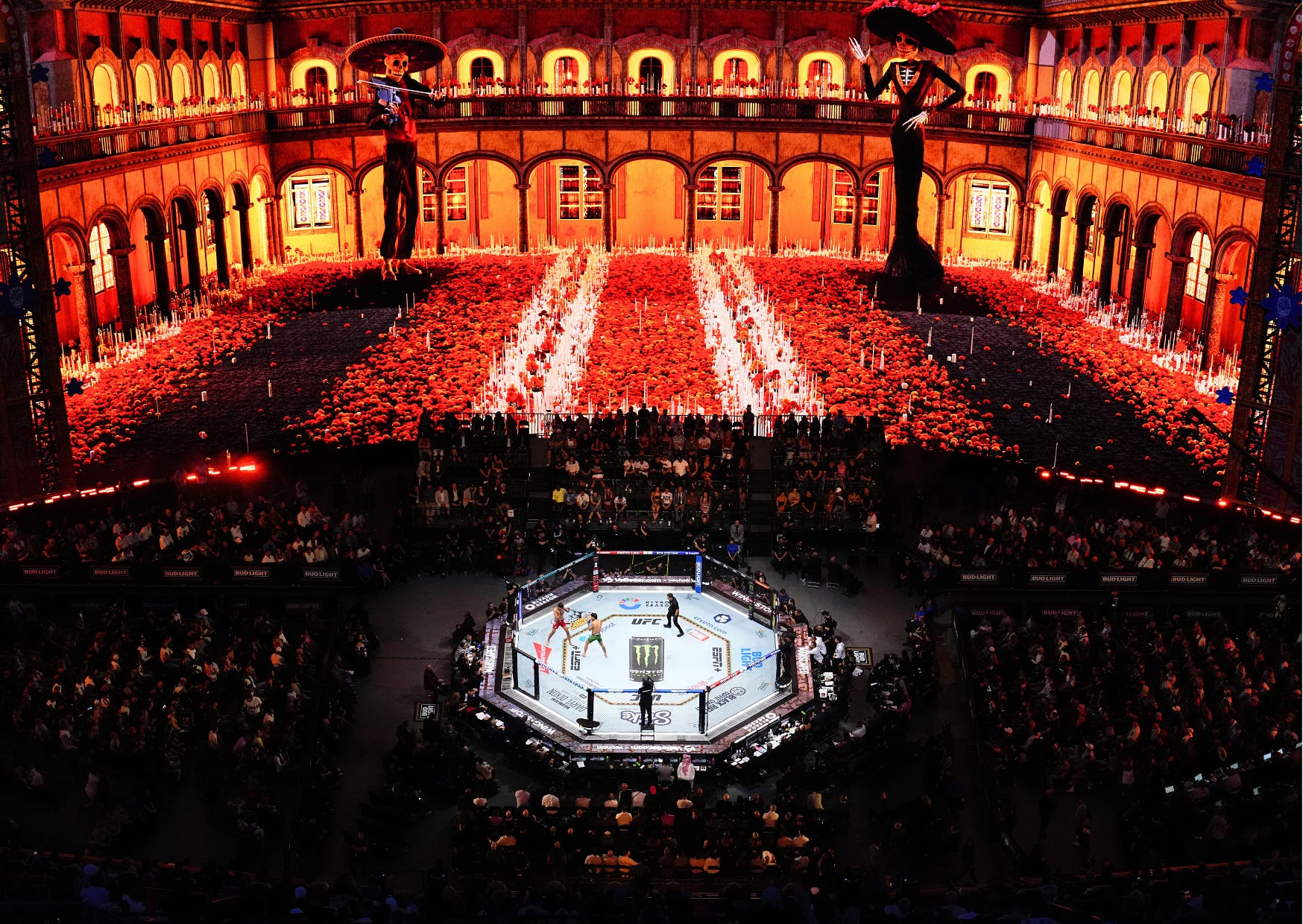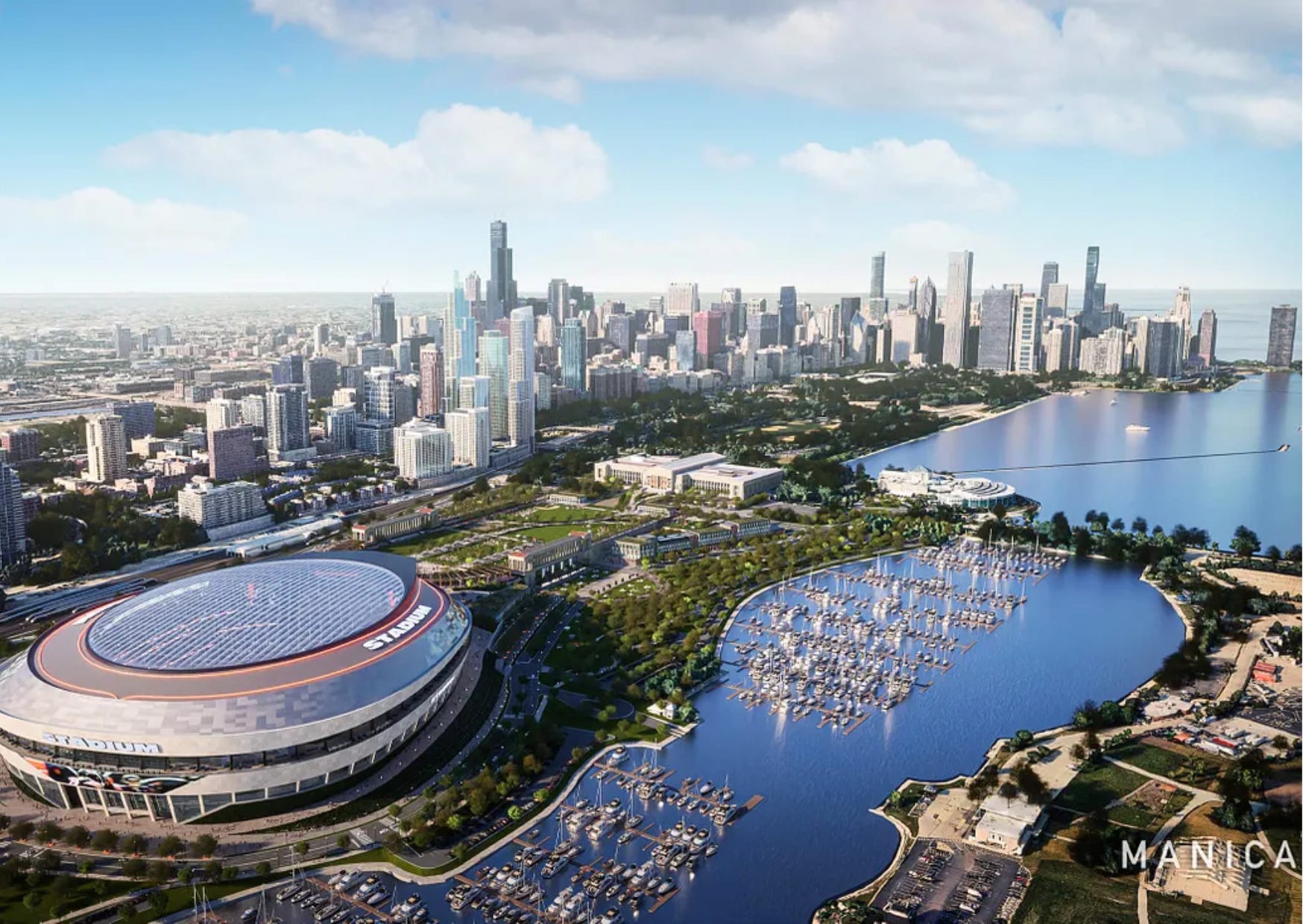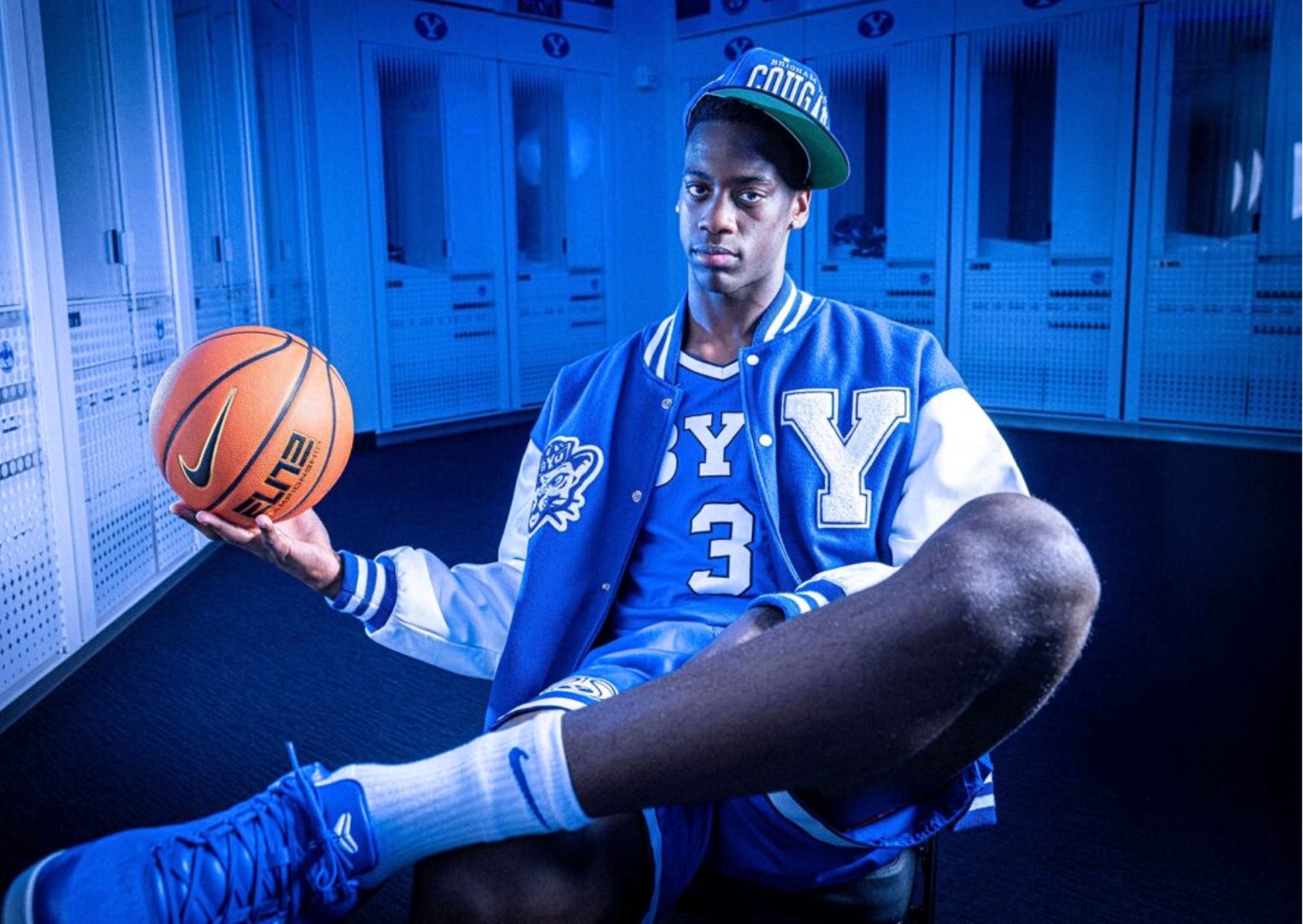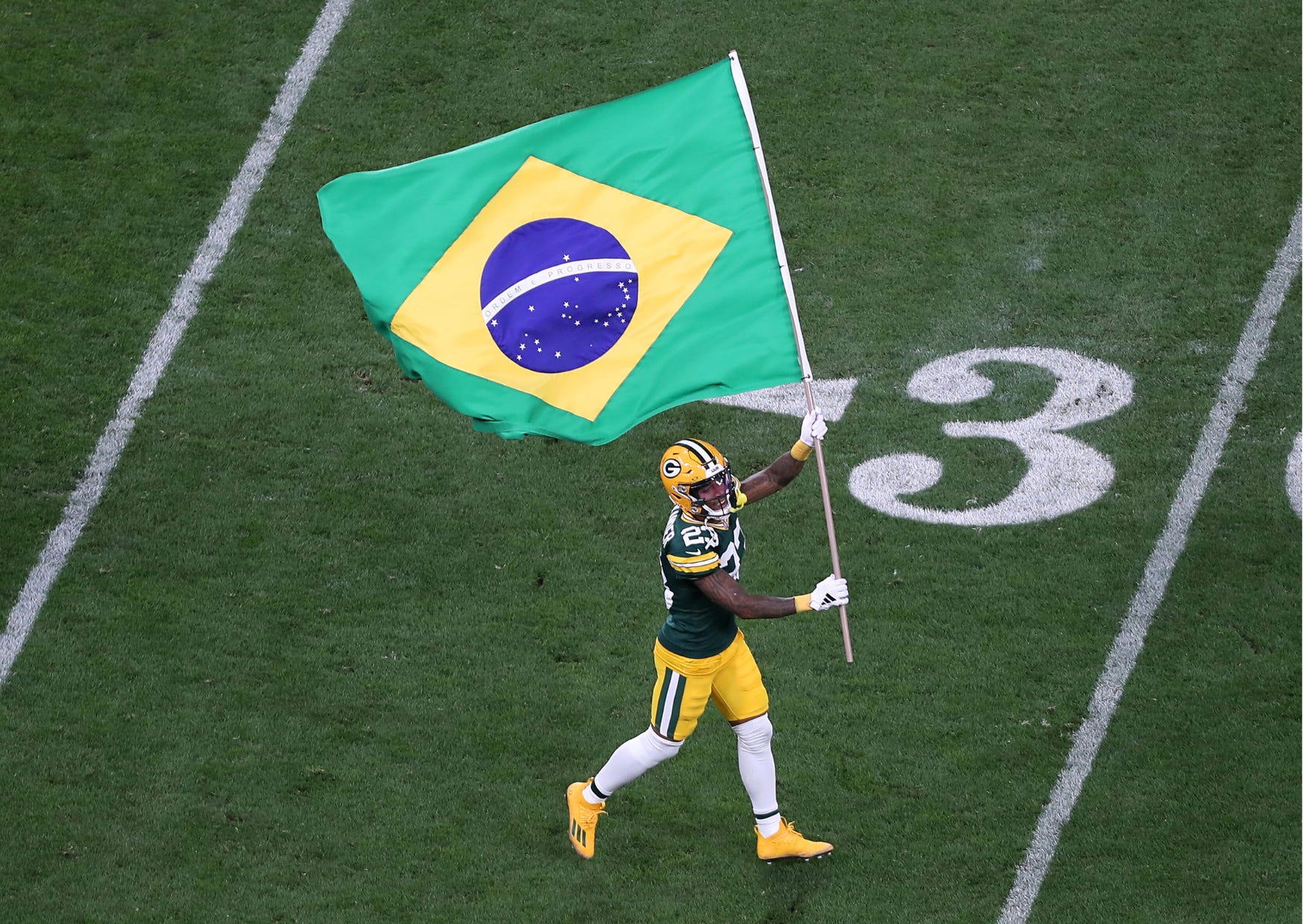My Sports Business Predictions For 2025
My Sports Business Predictions For 2025Today’s newsletter covers the UFC’s media rights deal, college sports programs up for sale, the Chicago Bears new stadium proposal, NBA expansion, and more.
Alright, everyone, it’s that time of the year. Optimism is high. The world is changing, and I will try to do the impossible — predict the future of sports business. I know some of these predictions won’t be correct, and that’s okay. The goal isn’t to be 100% accurate. These lists often state things that are completely obvious or have no chance of happening. Instead, I challenge myself to think critically, predicting what might happen based on trends I’ve seen developing over the last few months and years. If you agree with some of my predictions, that’s great! If not, email or comment below to tell me why. I often learn just as much from you guys as I hope you do from me. The UFC will sign a multi-network media rights deal: The UFC will be the most interesting media rights deal to watch in 2025. After spending the last few years building up ESPN+, the UFC is severely undervalued and one of the few major sports properties scheduled to hit the market over the next few years. ESPN has an exclusive negotiating window with the UFC in Q1, but my bet is that the UFC will transition from a one-network model to a multi-network model, similar to the NFL and NBA. ESPN will keep most of the rights as they launch their new flagship streaming service, but don’t be surprised if Netflix gets involved, too. Remember, Netflix is paying $5 billion for the rights to WWE’s Monday Night Raw — a company also owned by UFC’s parent company, TKO — and an annual event at the Las Vegas Sphere would 1) generate a lot of buzz and 2) fit perfectly into Netflix’s premium live event strategy. Yes, I know Dana White said the UFC wouldn’t be holding any more events at the Las Vegas Sphere because it costs $20 million to put on. But that’s a drop in the bucket for Netflix, especially if they turn it into a once or twice-per-year must-see event. The one caveat is that the UFC would probably have to share a percentage of the profits with MGM, as MGM has the exclusive rights to host all Las Vegas-based UFC events and only let the UFC out of its deal last year due to a scheduling conflict. A college football program will be *purchased* by a private equity firm: It’s no secret that private equity investors have been circling the waters on college sports, particularly college football, for some time. Former Milwaukee Bucks owner Marc Lasry said the quiet part out loud a few weeks ago when he mentioned that he was actively putting together acquisition proposals for several college football programs. There are still questions about how this would work, and maybe it starts with a PE firm buying a minority stake rather than a majority stake in a program. However, the NIL and facilities arms race has put a premium on cash in the bank, and some of the top college football programs would be valued at over $1 billion if they hit the market. Florida State University is a school to watch. They are one of the few major college programs that have been open about their interest in private equity investment. The Chicago Bears will change course, ditching their downtown stadium plan to head back to Arlington Park: By the time you read this email, the Chicago Bears have probably already changed their mind. The Bears have been working on a new stadium deal for years, hiring former Big Ten Conference commissioner Kevin Warren to lead the process. The initial plan was to build a new stadium 25 miles northwest of the city on a 326-acre plot of land in Arlington Heights that the team purchased for nearly $200 million. However, after months of back and forth with Arlington Heights on the land’s assessed value for property tax purposes, the Bears unveiled a new stadium plan last year that involved a downtown stadium built directly next to the current stadium. I don’t want to sound like a broken record on this, but I have continuously said this isn’t going to happen because it doesn’t make any financial sense. For example, Illinois Governor JB Pritzker has already called the current proposal a “non-starter” because it involves billions of dollars in taxpayer money while allowing the Bears to reap the financial reward from dozens of non-football events at the venue. The more likely explanation is that this was always a bargaining chip for a better deal in Arlington Heights. The Arlington Heights location is outside the city, but it would be substantially better for both the team and fans, as there would be more parking and the ability for the Bears to build a mixed-use development ($$$) around the stadium. The PGA Tour—LIV Golf deal finally gets done (but nothing changes): It has been two years since the initial framework agreement between the PGA Tour and LIV Golf was announced. The problem is that nothing has changed. Both entities are still operating separately. LIV Golf continues building out its unique team ownership model, and the PGA Tour still acts like its newest competition doesn’t exist. This deal is eventually going to get done. That’s not a surprise. What will surprise some people is that it won’t change anything. While the expectation is that a partnership between the PGA Tour and LIV Golf would put all the world’s best golfers back into the same tournaments, Saudi Arabia’s sovereign wealth fund is really just buying a small stake (less than 10%) in the PGA Tour’s new for-profit business. A positive short-term step would be getting some of the top LIV Golf players back into the biggest PGA Tour events. But that is still probably a year or two away, and neither organization seems in a rush to make it happen. College basketball starts to become the NBA’s G League: College basketball is already an NBA factory. High school recruits have to wait at least one year until turning professional, so most of the top players still attend at least one semester of college. However, while blue blood programs like Duke, UNC, Kansas, and Kentucky continue to sell recruits based on the history and tradition of their programs, the smartest college basketball schools will shift more aggressively toward an NBA model. BYU is a good example. The Provo-based school has hired many coaches directly from the NBA. That includes everyone from the training staff to team dieticians, but it also includes head coach Kevin Young. Young was paid more than $2 million annually to coach Kevin Durant and Devin Booker as the NBA’s highest-paid assistant coach, but he is now the head coach at BYU after signing a seven-year deal worth $30 million. BYU has raised a ton of NIL money to build its roster. That’s par for the course at this point. The real reason they will keep landing top recruits like AJ Dybantsa is that they are now running their program like an NBA program, with the school’s recruiting pitch exclusively revolving around the idea that they have the tools and people to prepare you for the NBA — similar to what Bill Belichick is attempting to do at UNC. The NBA will announce expansion teams in Seattle and Las Vegas: It’s no secret that the NBA plans to expand from 30 to 32 teams. It’s also widely expected that those two expansion franchises will be placed in Seattle and Las Vegas. NBA Commissioner Adam Silver has continuously said that the league would wait to announce expansion plans until the new media rights deal was figured out, and that’s now complete, too. The wild card here is that I think the NBA is waiting until the Boston Celtics sale is complete. Given that the defending NBA Champion could trade at a valuation north of $6 billion, this would be a helpful data point for determining expansion fees. Once the Celtics transaction is finalized, the NBA will officially announce its new expansion teams. My guess is that Fenway Sports Group (and minority owner LeBron James) will be involved in the Las Vegas bid, while the Seattle Kraken ownership group or someone from Amazon (Jeff Bezos/Andy Jassy) would make sense in Seattle. The NFL will add an 18th regular season game, expanding its international schedule: NFL Commissioner Roger Goodell hasn’t been shy about his desire to add an additional regular season game to the league’s increasingly large schedule. The current plan is to add an 18th regular season game along with a second bye week, remove at least one preseason game, and then push the Super Bowl back one weekend to Presidents Day weekend, a federal holiday that results in a three-day weekend. However, while most people think this will happen towards the end of this decade when the NFL’s CBA with the players association is up for renewal, I think Roger Goodell and the league’s 32 owners will push this through sooner rather than later. NFL players were awarded a maximum of 48.8% of league revenue when the schedule expanded to 17 regular season games. Maybe that number goes a little higher if the NFL wants to add an 18th regular season game before the CBA expires. But that’s not a huge concern for the NFL. The league’s current revenue-sharing agreement has a ton of exclusions that bring that percentage lower than people realize, and adding more games would give the league even more inventory to expand its international slate. The NFL will then opt out of its media rights deal in 2029 to renegotiate a new deal spread across several cable and streaming platforms worth more than $150 billion. If you enjoyed this breakdown, share it with your friends. Huddle Up is a 3x weekly newsletter that breaks down the business and money behind sports. If you are not a subscriber, sign up and join 127,000+ others who receive it directly in their inbox each week. You’re currently a free subscriber to Huddle Up. For the full experience, upgrade your subscription.
© 2025 |




